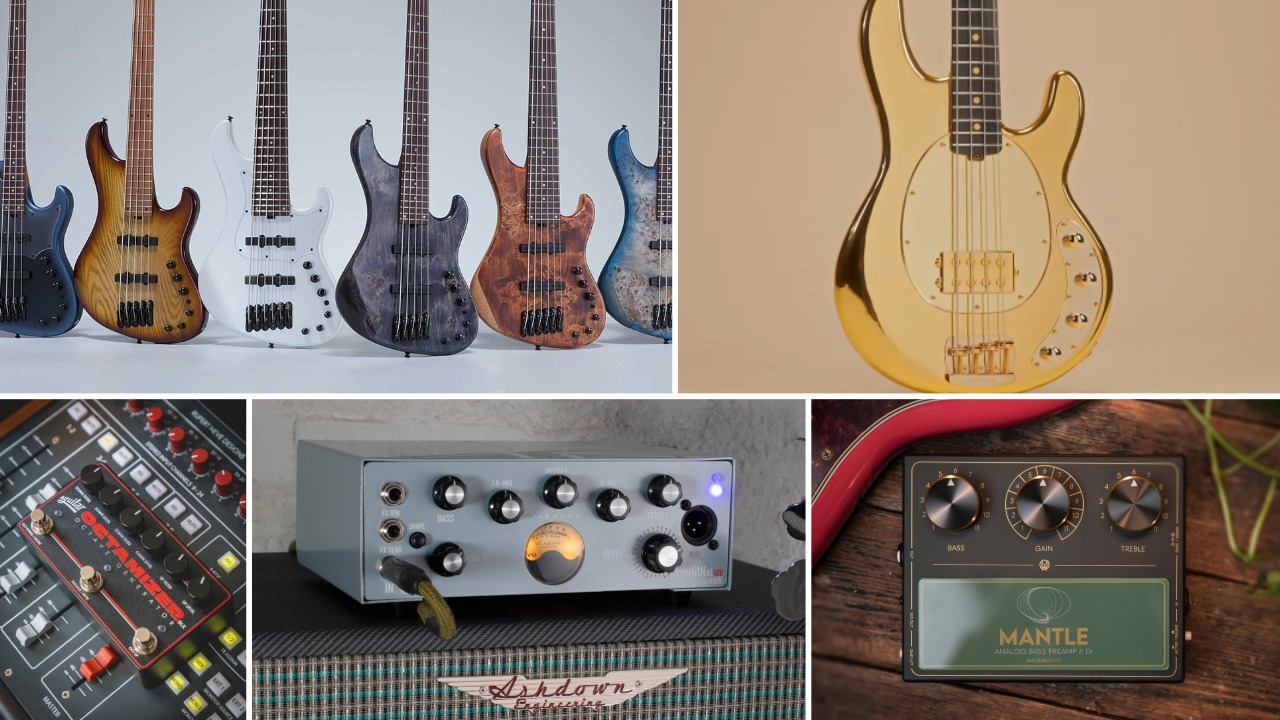Jinjer’s Eugene Abdukhanov: “For me, bass is not about how many notes you pick, but how well you pick every single one”
As Ukrainian metalcore aces Jinjer return, bassist Eugene Abdukhanov tells a tale about “the roots of all (bass) evil”...

“My story is either very trivial or vice versa – it’s not that common. I come from a family with absolutely zero musical background, so honestly it is hard to say where the roots of all evil come from. Maybe I was just inspired by grunge music in my early youth so much that it made me think I could self-express by means of music too.
“Who knows... but by the age of 16, I made a few friends who were playing in local bands, and at some point I just thought, well, maybe I should try this myself. Everyone kept saying that bass was easy to play, and I was green enough to believe it. So in my first year of university, during winter holidays, I went to work at a construction area, made some money, and bought my first bass. The funny thing is, I tried to compose music on the first day.
“That first bass guitar was a slightly customized and upgraded Soviet Ural instrument. I gradually made my way from Soviet trash into cheap Chinese basses, then my first really good axe was a five-string Spector Euro, which I used to record the debut Jinjer EP. Then I got my hands on a custom bass by Stas Pokotilo, a Ukrainian luthier whose guitar I have been using for five years.
“Currently, I mostly play my signature bass, an Achilles by Overload Guitars and a custom JNJR bass by Pokotilo. Both are five-string multiscale semi-active guitars. As for effects, I have been using Helix by Line 6 for a few years, but recently I got a bunch of pedals from Darkglass, and we managed to build a new chain and new concept of sound for the upcoming album. It features the B7K Ultra and a secret ingredient – a guitar overdrive pedal by Dunlop.
“I have also had a couple of Coffee Custom Cabinets for years now, a 2x12 and an 8x10, which I use for big and small stages respectively. Markbass amps are my absolute love! I have a Mark III, a small but very powerful touring machine that perfectly fits my main requirements – small, loud, versatile, and it has the tone.”
“There a few wonderful bass players in metal who had an impact on me as a musician, but there is one who definitely stands out – Ryan Martinie. He’s the man. If you pick every young bass player in modern rock music who is somehow well recognized in the musicians’ community, it’s 100 percent sure that there is a bit of Martinie in him or her.
“For me, bass is not about how many notes you play, but how well you pick every single one, even if there is only one in a bar – although it took years for me to realize that it truly works this way.
All the latest guitar news, interviews, lessons, reviews, deals and more, direct to your inbox!
“In metal, you can show off as much as you want by playing 16th triplets under layers of guitars and blastbeat drums, hiding all your bad timing, poor dynamics, lack of groove and originality. A simple, catchy, and groovy bassline, performed clean and with musicality, will really show who and what you are much better.”
- Wallflowers is out now via Napalm.
Bass Player is the world’s most comprehensive, trusted and insightful bass publication for passionate bassists and active musicians of all ages. Whatever your ability, BP has the interviews, reviews and lessons that will make you a better bass player. We go behind the scenes with bass manufacturers, ask a stellar crew of bass players for their advice, and bring you insights into pretty much every style of bass playing that exists, from reggae to jazz to metal and beyond. The gear we review ranges from the affordable to the upmarket and we maximise the opportunity to evolve our playing with the best teachers on the planet.

